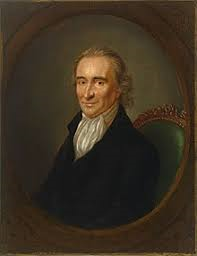MORE WORK FOR MOTHER
By Ruth Schawartz Cowan
Free Association Books, 1989, 257 pages
Most Significant Arguments
In More Work for Mother, author Ruth Schwartz Cowan links changes in domestic work with changes brought about by technological advancements. She speaks to the separation of labor into work for women, men and children. As technology makes tasks easier, or even not needed, Cowan notes how most of the advancements replaces work done by men and children. Those technologies that do help with “woman’s” work removes the “need” to keep other women help in the home.
Examples of taking away work by men and children are often around cooking stoves and ovens. As gas and electricity replaced wood and coal, the need for gathering and preparing wood dissipates. The cooking work still exists, but the help to mother by father and children is lessened, or even eliminated. Washing machines are another example. As machines came into the home there was no longer a perceived need for sending laundry out or having a laundress come into the home. Although doing a load of laundry was less strenuous, at the same time expectation for cleanliness also increased so the amount of laundry work increased. The effect of both of these examples was that work eased, but for mother workload increased.
In the post-war era of the 1960’s and 1970’s work for women outside the home became more normal. Unlike when this happened during the depression when poor women worked outside the home out of necessity, women in general felt either need or opportunity to do so. In this case not just poor women began to work outside the home, but so too middle-class women. Despite this, the housework did not shift off of mother and onto the rest of the family. Cowan argues this is because the division of labor, masculine and feminine work, has been firmly entrenched in American culture. Entrenchment of the single family home and self-sufficiency in America also keeps alternate arrangements from succeeding such as communal work sharing.
Comparison with Other Readings
Jesse Adams Stein addresses the idea of masculine and feminine work in the piece Masculinity and Material Culture in Technological Transitions. She points to the government press operations in Australia to show how cultural assumptions mold division of labor. Unlike the Cowan work looking to the home, Stein is looking at work outside the home, in the printing press. There was a division of “men’s work” in the press at the time of the letterpress. Generally the argument was that running a letterpress machine took physical strength and the ability to know a machine’s quirks so well as to be able to run it properly. Both of these aspects were thought to be beyond a woman’s ability. In fact a few women here-and-there did run these machines, but found other ways of approaching the need to load type if the weight was too much for them. Then the disruption came was letterpress was supplanted as a technology by offset lithography. Male machinists fought moving from the heavier manual process as they defined themselves in that role. Even when offset lithography became the norm, pressmen still defined their role in masculine terms. Less skill was needed to run the machines, but the tradition of working a press had been masculine and change was slow. Similar to Cowan’s argument that housework was primarily looked at as feminine culturally, Stein argues that press work was primarily looked at as masculine culturally.
Strengths and Weaknesses
Cowan’s arguments are well laid out. The technical migration and the corresponding correlation to changes in housework seem natural and logical. Even her arguments about why some technologies or processes were chosen over others seem to work.
One area I question was her depiction of the shift from mother as consumer of services to mother as producer of services. The “products” of mother were keeping the family fed, healthy and clean. As the specific work to accomplish this shifted from others to mother, and the quality and quantity expectation rose, the result was increased work for mother. Cowan gives examples of the shift from consumer to producer such as less delivery to the home with availability of the car. Mother now had to go to the supermarket to get the food rather than having it delivered, or going to a local market by walking there. The supermarket came about because increased use of refrigeration allowed for more variety of food out of season. As expectation to deliver health and food to family included a more varied diet, mother produced transportation of food stuffs by driving to a supermarket that was not close enough to walk to, and would not deliver. She also needed the car to allow for larger loads of foodstuffs required by the increased variety in diet.
I would argue that it is a little more complicated. For example when mother walked to the local market to pick up food, that act is not unlike driving to the supermarket. She was a consumer of delivery before the car (delivery to home, delivery to local market). She is a consumer of delivery after the car (delivery to the supermarket). Like drawing lines in a system between what is in and out of the system, the line between consumer and producer can be difficult. Mother was, and is, both consumer and producer of food delivery both pre- and post-car. The question is where does one draw the line? One could pick at similar arguments given by Cowan on healthcare (doctor home visits vs mother taking a child to the clinic), education (home schooling vs getting the kids to a public school), etc.
The ideas in this work could appeal to students of history, technology, sociology, gender, etc. I think there is appeal here to lay readers as well. The conversations sparked between my wife and I were interesting. My helpfulness with Thanksgiving preparations certainly increased, but I found her unwilling to allow me to get involved in some of the work which seem to support Cowan’s culture entrenchment arguments. Spouses and children should be more aware of the burdens on mothers whether they work outside the home or not.



 RSS Feed
RSS Feed